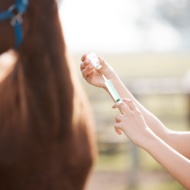Group campaigns as proposed shock collar ban date passes
The group is urging Defra not to U-turn on its promise of a ban.
Veterinary and animal welfare organisations are calling on the government to commit to its ban on hand-held electronic shock collars, after the proposed date for the ban passed without action.
The Department for Environment, Food and Rural Affairs (Defra) previously announced that the collars would be prohibited for use on dogs and cats in England from 1 February.
However no time was allocated to debate the proposed ban, which the organisations say has led to no further progress. They are now urging Defra not to U-turn on its promise of a ban.
The group of organisations, which includes Dogs Trust and the British Veterinary Association, has been campaigning against the use of shock collars for many years. This led to 51,000 members of the public supporting the campaign by writing to their MPs.
They also reference two separate polls, independently commissioned by The Kennel Club and RSPCA, which revealed that nine in ten adults supported an urgent ban on the use of shock collars.
Electronic shock collars are currently legal for use on any animal, in any situation that the handset bearer requires it.
They are often used to train pets, punishing unwanted behaviours by administering an electric shock to the animal’s neck. This is intended to teach the animal to be fearful of receiving a shock, and therefore avoiding that behaviour.
It is also used as a precaution to prevent dogs from livestock worrying, which can be dangerous for both the pet and the livestock.
However Dogs Trust says that the use of electronic shock collars can cause dogs to become anxious about their surroundings, leading them to become aggressive or avoidant of other people or things in their environment when they receive the shock.
The charity also refers to data from five police forces, which suggest that most livestock worrying incidents occur from unaccompanied dogs. It says that a more effective method of preventing livestock worrying is keeping the dog on a lead.
Speaking on behalf the group of organisations, Paula Boyden, veterinary director of Dogs Trust, said: “We are collectively calling on Defra not to U-turn on its promise to ban the sale and use of electric shock collars and to find the time to bring this ban into effect. There is simply no place or need for these cruel devices in modern pet training.”
A Defra spokesperson said: “The UK is a world leader on animal welfare and we are fully committed to maintaining and enhancing our strong track record, including delivering the ban on hand-controlled electric shock collars.”
Image © Shutterstock



 Zoetis UK has apologised for a supply shortage of Equip Artervac, caused by a manufacturing issue.
Zoetis UK has apologised for a supply shortage of Equip Artervac, caused by a manufacturing issue.